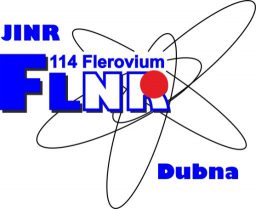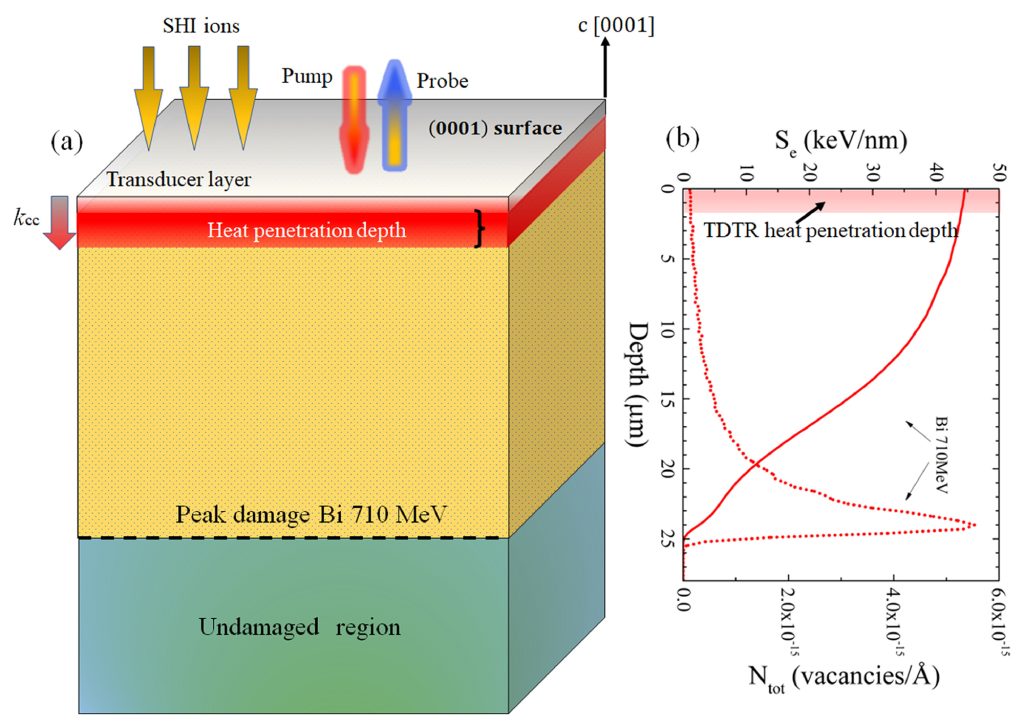Effect of fast heavy ion irradiation-induced point defects on nanoscale heat transfer in ZnO
Together with scientists from scientific centres in Kazakhstan and South African Republic FLNR researchers studied the effect of fast heavy ion (FHI) irradiation-induced point defects on nanoscale heat transfer in ZnO. The results of the study were published in “Materials Research Bulletin“ journal.
Using laser thermorefractometry method a team of specialist studied changes in the subsurface thermal conductivity (k) of ZnO monocrystals. Zink oxide samples were irradiated with Bi fast heavy ions of 710 MeV energy up to 1010-1013 ion/cm2 fluencies to study radiation damages caused by both the passage of single ions and in the track region overlapping mode.
(a)Schematic view of the FHI irradiated ZnO structure with deposited Al heat transmitting layer for thermal measurements. (b) Ionization energy loss (solid line) and vacancy production (dotted lines) in ZnO as a function of projected depth under 710 MeV Bi irradiation.
Structural characterisation by X-ray diffraction method, Raman spectroscopy and transmission electron microscopy methods showed no amorphization after irradiation. Deterioration of the thermal conductivity k was explained mostly by photon scattering at point defects.
k measurement values were used to validate semi -analytical Clemens-Callaway model as well as a new hybrid method based on TREKIS Monte-Carlo code which together with molecular dynamics methods describes well both the effects induced by single ions and ion repeated impact on track overlapping. The results of this work contribute to the development of new approaches to the design of functional materials using heavy ion irradiation.
The full text of the article is available here. Ruslan Rymzhanov and Vladimir Skuratov, research scientists of the FLNR ion-implantation nanotechnologies and radiation material science represent JINR among the authors.

